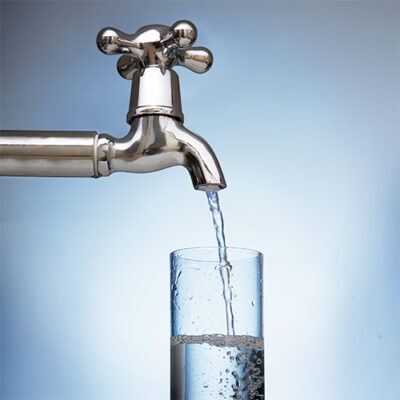Lerato Mbhiza
THE City of Johannesburg (CoJ) has presented an action plan, comprising immediate, medium and long-term measures, to tackle widespread water infrastructure challenges and the high levels of non-revenue water.
This comes after Johannesburg residents have been warned to brace for further water cuts after another lighting strike at the Eikenhof substation.
The substation south of Johannesburg tripped on Monday night following a lightning storm
Water and Sanitation Minister, Senzo Mchunu, together with his Deputy Ministers, David Mahlobo and Judith Tshabalala, met with Johannesburg City officials, led by Executive Mayor Kabelo Gwamanda, to receive an update on the city’s plans to deal with the current water challenges and future water supply sustainability plans for the metro.
The meeting held this week was a follow-up to a meeting held on 5 March 2024, where the department presented a comprehensive assessment report on the state of water provision in the city amid regular water supply interruptions experienced by residents.
At the meeting held on 5 March, the city was requested to come back with an action plan to address all the issues raised in the report, including how it will deal with the infrastructure challenges and non-revenue water, which is contributing to the water supply challenges.
During this week’s meeting, the city presented a wide-ranging plan on immediate, medium- and long-term measures to ensure a sustainable water supply. These include infrastructure projects to refurbish, upgrade and construct new storage reservoirs and pump stations, as well as associated infrastructure to augment storage capacity.
The plan also includes addressing non-revenue water through the implementation of water conservation and demand management technical interventions to reduce demand.
The city also presented technical interventions, which include repairing leaking reservoirs and tower infrastructure; replacing water pipes, domestic and large consumer meters; retrofitting and removal of wasteful devices, and enforcement of by-laws, including removal of illegal connections and customer bypass connections.
Gwamanda said these projects are at various stages of implementation, while others still require funding.
The meeting also heard that the city infrastructure backlog is estimated at around R27 billion but agreed that focus should be on what can be done with the current and upcoming budget in July.
Gwamanda commended the support from the Water and Sanitation Ministry, saying that the city is looking at various options to mitigate water supply interruptions.
“We have set aside about R100 million for the electricity supply entity, City Power, to put alternative power supply infrastructure to key infrastructure that contributes to the water supply network,” Gwamanda said.
Mchunu acknowledged the efforts of the city’s water entity, Johannesburg Water, to deal with infrastructure backlogs, and various interventions implemented to deal with the current recurring water outages.
Mchunu urged the city to work on its turnaround time in responding to pipe bursts and leaks in their distribution network, as this contributes to the high physical water losses.
“It is clear that the city requires serious interventions and funding to deal with its water infrastructure renewal programme, and the department will work with Joburg Water in packaging some of their key infrastructure projects that require blended finance, including from the private sector.
“We have agreed, collectively, that over and above the technical interventions to address non-revenue water, there is a serious need for a compressive public awareness campaign to conscientize residents on the importance of water conservation and water use efficiency as part of the Water Conservation and Water Demand Management Strategy,” Mchunu said.
The metro’s non-revenue water currently sits at 46.1%, while the consumption rate is at 280 litres per capita per day.
INSIDE POLITICS

